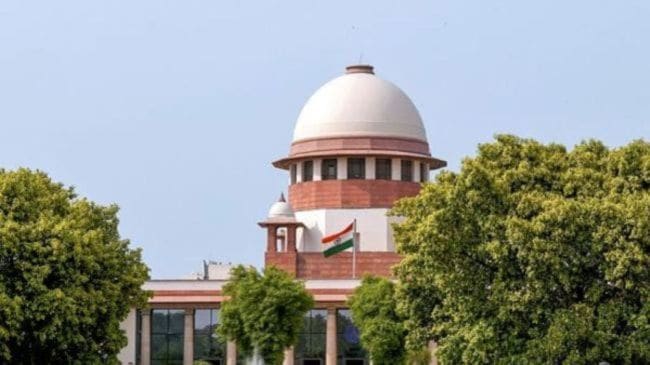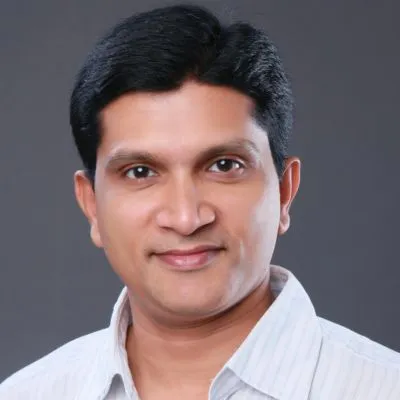‘Their Government’ vs ‘Our Government’: Sparks fly in Supreme Court over J&K statehood assurances
Petitioner’s counsel Senior Advocate Gopal Sankaranarayanan said more than a year has passed since the election in J&K, but there is no sign of statehood being restored.
 On Friday too, the CJI referred to the April 22 Pahalgam terror attack by Pakistan-backed terrorists which killed 26 Hindu tourists.
On Friday too, the CJI referred to the April 22 Pahalgam terror attack by Pakistan-backed terrorists which killed 26 Hindu tourists. Sparks flew in the Supreme Court on Friday during the hearing on petitions seeking the restoration of statehood for Jammu and Kashmir, with Solicitor General Tushar Mehta strongly protesting to a petitioner’s counsel referring to the central government as “their government” and “your government”.
Appearing for a petitioner, Senior Advocate Gopal Sankaranarayanan told a bench of Chief Justice of India B R Gavai and Justice K Vinod Chandran that during the hearing on petitions challenging the abrogation of Article 370, the Solicitor General (SG) had assured that statehood will be restored and J&K’s status as a Union territory is temporary.
‘Take ground realities into consideration’
Appearing for the Centre, Mehta said, “The undertaking is of course is to be respected. But Your Lordships are aware, there are circumstances, there are situations, there are several angles…it is a matter of concern on this side of the border, on the other side of the border, there are several considerations.”
Seeking six weeks’ time, he added, “This is a sui generis (unique) problem,” and added, “There are wider, larger concerns which we may not be able to know.”
Hearing the matter on August 14, the CJI had said, “You also have to take into consideration ground realities…You can’t ignore what has happened in Pahalgam.”
On Friday too, the CJI referred to the April 22 Pahalgam terror attack by Pakistan-backed terrorists which killed 26 Hindu tourists. “These are issues to be taken into consideration after considering various aspects. Pahalgam is not yet…”
Before the CJI could finish speaking, Sankaranarayanan added, “…which was under their watch… Union of India, Union Territory, so under their watch.”
Taking exception to the comment, Mehta countered, “Not their, under our government’s watch.”
“Yes, your government’s watch,” responded Sankaranarayanan.
The SG shot back, “Not your government’s watch. I object to this. Under our government’s watch,” he said, and urged the court to rule on it. “Who are these petitioners? They are not considering government their government?”
On assurance of statehood
Sankaranarayanan said, “Before the Constitution bench, we took an argument saying that the state cannot be dissolved into Union territory. It is a constitutional question.” The CJI pointed out that the court “had rejected that argument.”
Sankaranarayanan said that in view of the SG’s assurance that statehood would be restored upon elections being held, the court had decided not to go into the question whether the reorganisation of the state into two Union territories is permissible under the Constitution.
“Elections have been held. Statehood was taken away in August 2019. We are in 2025 now. An assurance was given to this court… After elections have been held, much water has flown under the bridge.”
Intervening, the SG said, “Water and blood also. And we have a citizen before the Supreme Court who treats the Government of India as your government, not my government… There is one citizen at least who treats this government as your government and not my government. This is one of the factors which the government will have to take into (consideration).”
Sankaranarayanan said that more than a year has passed since the election and there is no sign of statehood being restored. He urged the court: “Like any other case where an undertaking is made…please enforce the undertaking with any reasonable time period.”
Appearing for Irfan Hafiz Lone, an MLA, Senior Advocate Menaka Guruswamy said the matter raised the question, “What are the consequences for federalism in India if a state can be transformed in this fashion to a Union territory” and the assurance given to the constitutional court is not kept. She added, “This is a bad precedent when it comes to the Constitution. Article 1, 2 and 3, do not envisage the conversion of a state to a Union territory.”
Mehta said that “it does (permit conversion of a state into a UT) and I have shown the judgments.”
The court finally agreed to adjourn the matter by four weeks.





